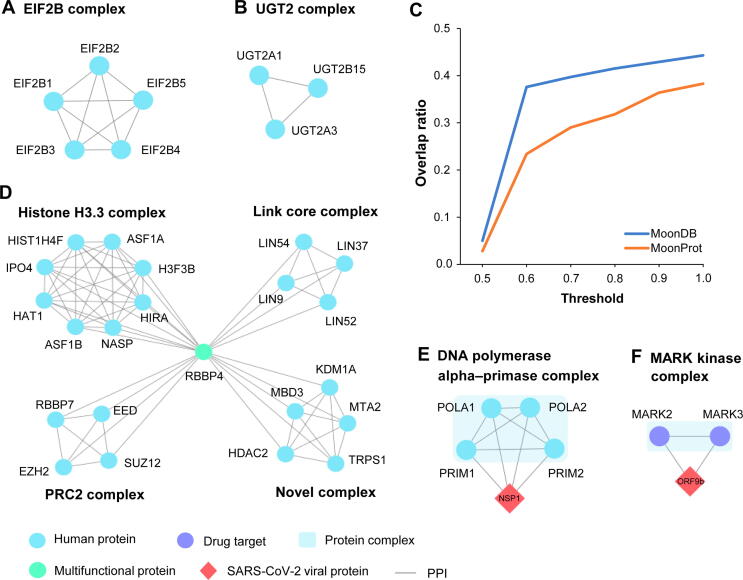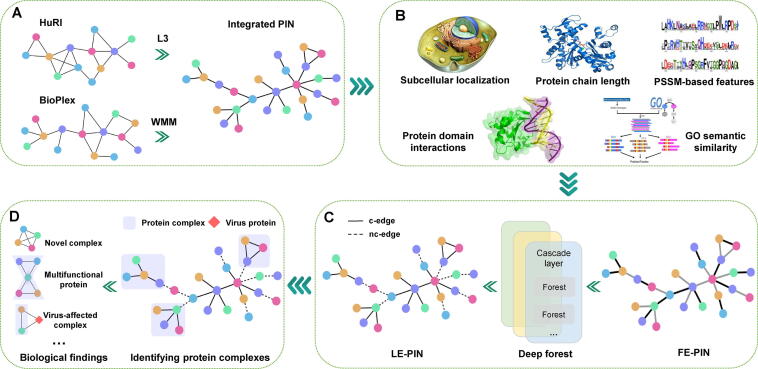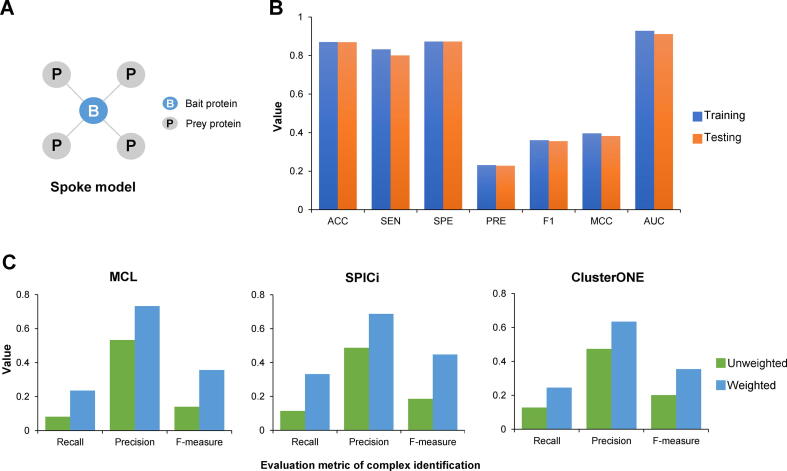HPC-Atlas: Computationally Constructing A Comprehensive Atlas of Human Protein Complexes
IF 7.9
2区 生物学
Q1 GENETICS & HEREDITY
引用次数: 0
Abstract
A fundamental principle of biology is that proteins tend to form complexes to play important roles in the core functions of cells. For a complete understanding of human cellular functions, it is crucial to have a comprehensive atlas of human protein complexes. Unfortunately, we still lack such a comprehensive atlas of experimentally validated protein complexes, which prevents us from gaining a complete understanding of the compositions and functions of human protein complexes, as well as the underlying biological mechanisms. To fill this gap, we built Human Protein Complexes Atlas (HPC-Atlas), as far as we know, the most accurate and comprehensive atlas of human protein complexes available to date. We integrated two latest protein interaction networks, and developed a novel computational method to identify nearly 9000 protein complexes, including many previously uncharacterized complexes. Compared with the existing methods, our method achieved outstanding performance on both testing and independent datasets. Furthermore, with HPC-Atlas we identified 751 severe acute respiratory syndrome coronavirus 2 (SARS-CoV-2)-affected human protein complexes, and 456 multifunctional proteins that contain many potential moonlighting proteins. These results suggest that HPC-Atlas can serve as not only a computing framework to effectively identify biologically meaningful protein complexes by integrating multiple protein data sources, but also a valuable resource for exploring new biological findings. The HPC-Atlas webserver is freely available at http://www.yulpan.top/HPC-Atlas.



HPC图谱:计算构建人类蛋白质复合物的综合图谱。
生物学的一个基本原理是,蛋白质往往会形成复合体,在细胞的核心功能中发挥重要作用。为了全面了解人类细胞功能,拥有一个全面的人类蛋白质复合物图谱至关重要。不幸的是,我们仍然缺乏如此全面的实验验证的蛋白质复合物图谱,这使我们无法完全了解人类蛋白质复合物的组成和功能以及生物学机制。为了填补这一空白,我们建立了人类蛋白质复合体图谱(HPC图谱),据我们所知,这是迄今为止最准确、最全面的人类蛋白质复合体图集。我们整合了两个最新的蛋白质相互作用网络,并开发了一种新的计算方法来识别近9000个蛋白质复合物,包括许多以前未表征的复合物。与现有的工作相比,我们的方法在测试集和独立集上都取得了突出的性能。此外,通过HPC Atlas,我们鉴定了751种严重急性呼吸综合征冠状病毒2型(严重急性呼吸系统综合征冠状病毒冠状病毒2型)影响的人类蛋白质复合物,以及456种含有许多潜在兼职蛋白质的多功能蛋白质。这些结果表明,HPC Atlas不仅可以作为一个计算框架,通过整合多个蛋白质数据源来有效识别具有生物学意义的蛋白质复合物,而且可以作为探索新的生物学发现的宝贵资源。HPC Atlas Web服务器可在http://www.yulpan.top/HPC-Atlas.
本文章由计算机程序翻译,如有差异,请以英文原文为准。
求助全文
约1分钟内获得全文
求助全文
来源期刊

Genomics, Proteomics & Bioinformatics
Biochemistry, Genetics and Molecular Biology-Biochemistry
CiteScore
14.30
自引率
4.20%
发文量
844
审稿时长
61 days
期刊介绍:
Genomics, Proteomics and Bioinformatics (GPB) is the official journal of the Beijing Institute of Genomics, Chinese Academy of Sciences / China National Center for Bioinformation and Genetics Society of China. It aims to disseminate new developments in the field of omics and bioinformatics, publish high-quality discoveries quickly, and promote open access and online publication. GPB welcomes submissions in all areas of life science, biology, and biomedicine, with a focus on large data acquisition, analysis, and curation. Manuscripts covering omics and related bioinformatics topics are particularly encouraged. GPB is indexed/abstracted by PubMed/MEDLINE, PubMed Central, Scopus, BIOSIS Previews, Chemical Abstracts, CSCD, among others.
 求助内容:
求助内容: 应助结果提醒方式:
应助结果提醒方式:


